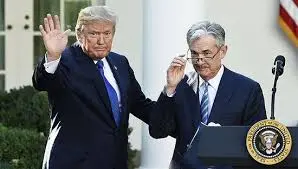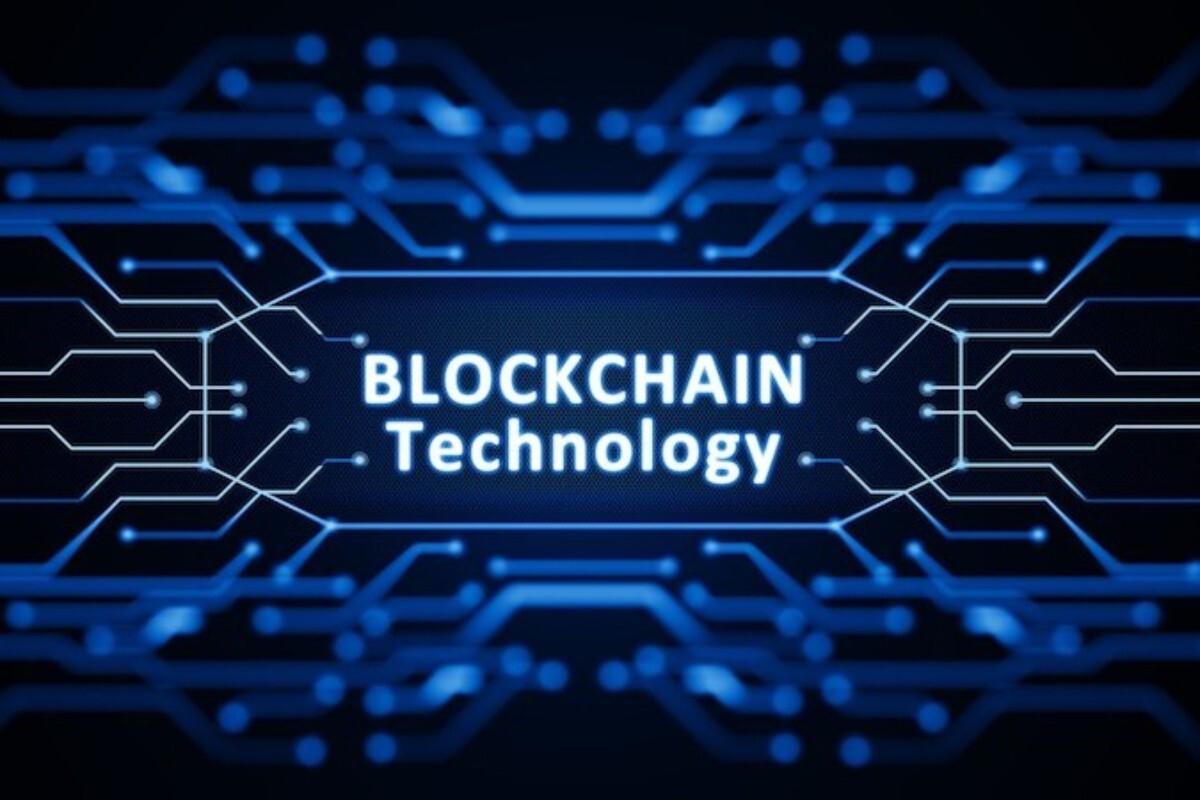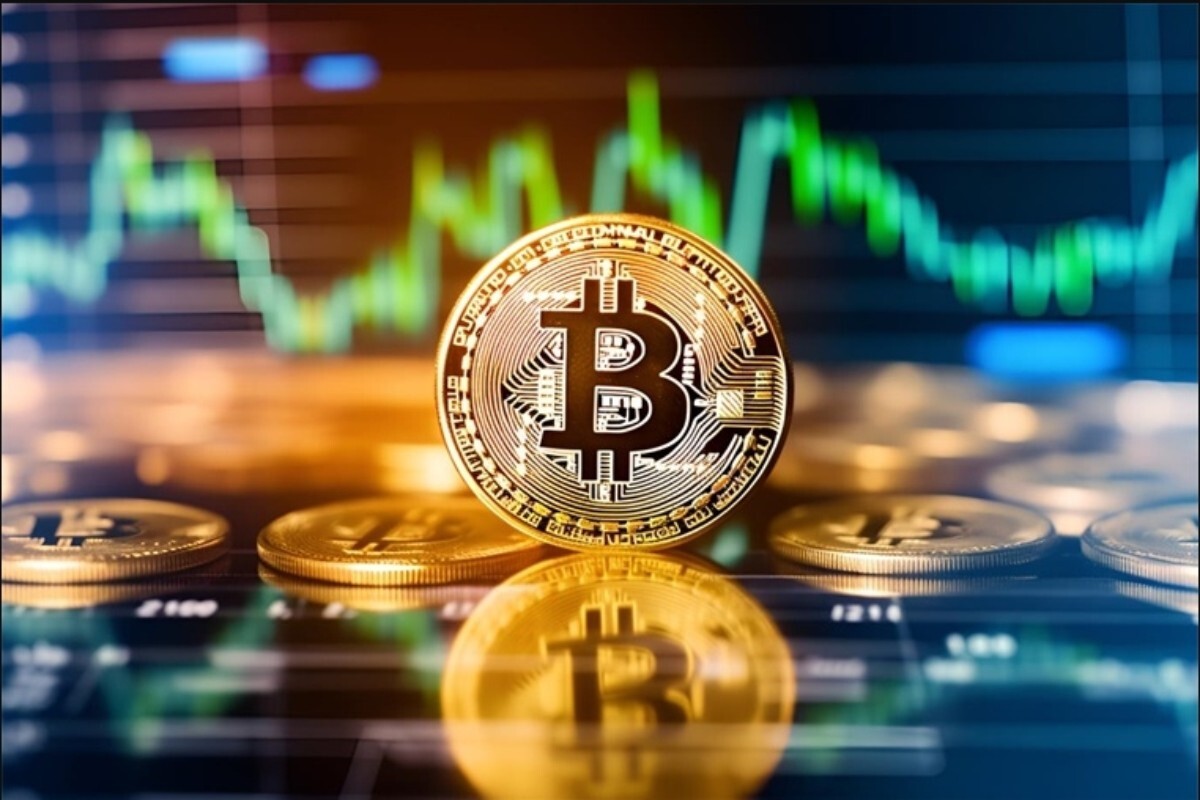Source: Wall Street News
Trump's dissatisfaction with Powell has become public.
Within one day Thursday, Trump criticized Powell three times, saying it was "always too late and wrong", accusing him of "politics" and "too bad", and put pressure on interest rate cuts again, believing that Powell "should have lowered interest rates long ago as the European Central Bank" and called on Powell to "resign as soon as possible."
As Trump's dissatisfaction with Powell grew, former Federal Reserve Director Wash, as his favorite candidate for the next Federal Reserve chairman, once again became the focus of public opinion.
The Wash favored by Trump is not the first time he has entered the public eye. As early as 2017, Trump considered nominating Wash before appointing Powell. But his background is quite controversial. As the son-in-law of Estee Lauder's heir, Wash had almost no background in orthodox economics, and he repeatedly misjudged the market and the economy during the financial crisis.
Regarding Trump's tariffs, Wash believes the impact on inflation is "small, one-time" and may even be offset by the deflationary effects of deregulation and spending cuts.
It is worth noting that Wash himself does not want to take office early. He persuaded Trump not to remove Powell and advocated that he complete his term.
01 Trump advocated Powell's resignation as soon as possible
On Thursday morning, Eastern Time, Trump posted on social media:
Always too late and wrong” Fed Chairman Jerome Powell released a report yesterday, which is another typical, total “chaos”!
Powell should have lowered interest rates long ago as the ECB did, but he should definitely lower them now. The faster Powell's resignation, the better!
During the afternoon session of the U.S. stock market on Thursday, Trump called out to Powell twice.
Trump said, I agreeFor Powell, he did not do his job well. If I ask, he has to leave. Powell couldn't make me happy. He is always slow to move.
Trump accused Powell of manipulating politics, saying he was too bad.Interest rates in the United States have risen and interest rates should be suppressed. Powell should cut interest rates. Trump also compared Europe, saying that Europe is cutting interest rates.
After a few dozen minutes, Trump "blame" Powell again, saying that the Federal Reserve should cut interest rates, which is what the Federal Reserve owes the American people. Powell will face great political pressure.
Trump saidThe only good thing Powell can do is cut interest rates. If Europe cuts interest rates and the Fed is indifferent, it will put the United States at a disadvantage. Costs have dropped, and inflation in the United States is minimal.
These comments by Trump are clearly in response to Powell's hawkish statement last night. Trump reiterated his rhetoric more than a week ago, saying that the Fed "can be fully able to wait until (the situation) is clearer and then consider adjusting our policy position." Powell believes that Trump's policies such as tariffs have put the economy in high uncertainty, and the Fed should avoid tariffs pushing up inflation for a long time.
actually,Trump has long been dissatisfied with Powell. Trump feels that Powell remains "half a beat" and "acts too slowly" in anti-inflation. He repeatedly urged interest rate cuts on social media, asking Powell to "take action quickly."
02 The U.S. Supreme Court's verdict may affect Powell's appointment
On Monday, there was a rumor that the Federal Reserve "changed its coach" was heard by the White House. Treasury Secretary Bescent said he and Trump were “always considering” the candidate for the next Fed chairman and planned to start interviewing potential candidates in the fall.
These rekindled speculation about changes in the Fed's leadership. Jim Bianco, a well-known financial analyst, believes that Powell may face two fates: either directly fired by Trump or undermined because the nominee of Powell's successor can speak to undermine his authority.
It is worth noting that in May this year, a ruling by the U.S. Supreme Court may become a "black swan" event this summer. Trump's administration is preparing to request the Supreme Court to fire two senior federal agencies.
Some analysts pointed out that the final judgment in this case is a test of "whether Trump has the right to fire Federal Reserve Chairman Powell" - although the current Federal Reserve Act stipulates that there must be "legitimate reasons" to fire the Federal Reserve Chairman, if the Supreme Court overturns the jurisprudence of the "Humphrey Executor" case, it will undoubtedly greatly weaken this protective barrier and open the door for the president to interfere in the operation of the Federal Reserve.
That is to say, by changing the legal rules, Trump may be able to "easily" fire the Federal Reserve Chairman in the future.
Asked on Wednesday about the political threats facing the position of Fed Chairman, Powell said that the Fed's independence is granted by US law and the government cannot remove Fed officials without reason. "Our independence (the Federal Reserve) is a legal issue," he said.
Powell said the Fed will continue to do what it should do without being affected by politics. No matter what political pressure it faces, the Federal Reserve will do its job well.
03 “Next Fed Chairman, Wash, opposes early replacement of Powell
On Thursday, media reported that Trump had been privately exploring the possibility of dismissing Powell before the end of his term and considering taking over by Kevin Warsh. Wash himself allegedly persuaded Trump not to remove Powell, proposing to complete his term.
Media said the exchange between the two continued until February this year, while other White House personnel still suggested to Trump to remove Powell until early March. But he has not finally decided whether to remove Powell's term before the end of next year, according to a person familiar with the matter, but he has not finally decided whether to remove him before the end of next year.
Who is Wo? Unlike former Fed chairmen such as Powell and Yellen, Wash is not an economist and his personal background is quite controversial.
As a lawyer, Wash worked at Morgan Stanley until 2002, and then entered the middle-level economic position of the Bush administration. He was appointed as a Fed in 2006 and left office in 2011.
In 2017, a Truthout report described Wash's path to success as "the art of marrying into a wealthy family and rising step by step." The report noted that Wash's father-in-law was billionaire Ronald Lauder, heir to the Estee Lauder cosmetics empire and a major donor to the Republican Party.
The report criticized Wash for "almost misjudging everything" during his tenure as Fed.
In a speech in March 2007, Wash was still touting the explosive growth of credit default swaps and other derivative instruments when the real estate bubble had rapidly contracted and financial markets were increasingly volatile, failing to foresee problems that would arise in the next year and a half.
After the crisis, Wash was worried about inflation too early and opposed measures to stimulate the economy.
When the U.S. economy was on the verge of collapse in October 2008, Wash expressed doubts about the effectiveness of fiscal stimulus. He even cites some labor market data to argue that the economy may not be that bad.
He failed to recognize the severity of the recession and the consequences of mass unemployment, an attitude that continued until 2009. In September of that year, before the unemployment peaked, Wash was already worried about the need to reverse the Federal Reserve's stimulus for the economy to prevent a comeback.
At that time, Wash continued to oppose the Federal Reserve's efforts to stimulate the economy and continued to express concerns about inflation until his resignation in early 2011.
How does Wash, the "next Fed chairman" view Trump's tariffs and how the Fed deals with inflation?
In a commentary article published in the Wall Street Journal in January, Wash made it clear that the inflationary effect of tariff policies may be much smaller than the deflationary effect caused by deregulation and spending cuts. He pointed out that trade accounts for only about 25% of the US GDP, and the general tariffs proposed by Trump will only have a "small, one-time" impact on the overall price level.
Wash also believes that the Fed should not attribute inflation to the COVID-19 pandemic, the Russian-Ukrainian conflict or the upcoming Trump tariffs, and pointed out that inflation actually stems from "too much government spending and too much central bank printing money."
Wash questioned Fed officials' predictions on political policy. He noted in particular that Fed officials ignored the full impact of other potential policies when predicting Trump's tariff policy would push up inflation.
















No comments yet